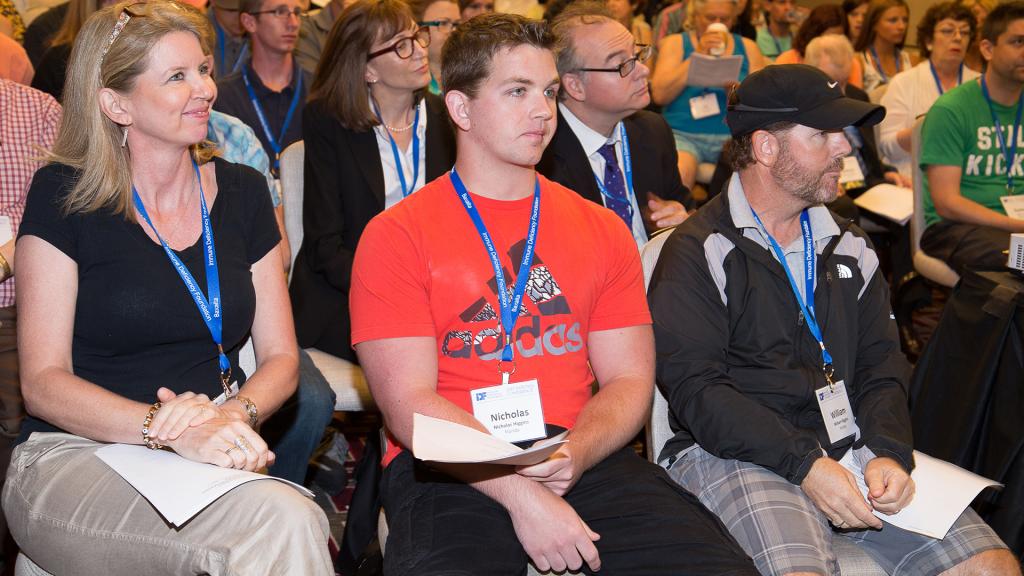
-
Understanding primary immunodeficiency (PI)

Understanding PI
The more you understand about primary immunodeficiency (PI), the better you can live with the disease or support others in your life with PI. Learn more about PI, including the various diagnoses and treatment options.
-
Living with PI
-
Addressing mental health
-
Explaining your diagnosis
- General care
- Get support
- For parents and guardians
-
Managing workplace issues
- Navigating insurance
-
Traveling safely

Living with PI
Living with primary immunodeficiency (PI) can be challenging, but you’re not alone—many people with PI lead full and active lives. With the right support and resources, you can, too.
-
Addressing mental health
-
Get involved

Get involved
Be a hero for those with PI. Change lives by promoting primary immunodeficiency (PI) awareness and taking action in your community through advocacy, donating, volunteering, or fundraising.
-
Advancing research and clinical care
-
Grants
-
IDF surveys
-
Participating in clinical trials
-
Diagnosing PI
-
Consulting immunologist
-
Clinician education

Advancing research and clinical care
Whether you’re a clinician, researcher, or an individual with primary immunodeficiency (PI), IDF has resources to help you advance the field. Get details on surveys, grants, and clinical trials.
-
Grants
When looking back at the Immune Deficiency Foundation’s first CGD Symposium, held on June 25- 26 during the IDF 2015 National Conference in New Orleans, one word immediately comes to mind: WOW!
Although Chronic Granulomatous Disease (CGD) is a rare condition, affecting only about 1,200 people in the U.S., our CGD community is bigger, stronger, and more active than ever!
In fact, the number of attendees with CGD quadrupled since our last National Conference in Baltimore in 2013. This year, 78 patients and family members attended—compared to 17 in 2013. Indeed, it is an exciting time to be part of the CGD community!

Thanks to generous scholarships from Horizon Pharma, patients and family members from across the U.S. and Canada were able to attend this groundbreaking event and learn the latest news and information on CGD from the world’s foremost specialists in the field, including:
- Steven Holland, MD, National Human Genome Research Institute, NIH, spoke about current best practices in CGD treatment, as well as advancements in gene therapy.
- Sergio Rosenzweig, MD, PhD, National Human Genome Research Institute, NIH, provided an in-depth look into how CGD affects the immune system.
- Theo Heller, MD, National Human Genome Research Institute, NIH, discussed GI involvement in CGD, and what patients need to look out for.
- Andrew Gennery, MD, a senior lecturer in Pediatric Immunology and Stem Cell Transplantation at Newcastle University, discussed the enormous advancements in stem cell transplantation techniques, thanks to refined HLA-tissue typing, the increased use of alternative donors, as well as the availability of new stem cell sources including umbilical cord blood as well as less toxic chemotherapeutic conditioning.
- Joie Davis, PNP-BC, APNG, National Institute of Allergy and Infectious Diseases, NIH, presented a fascinating overview of how patients inherit CGD.
- Victoria Anderson, MSN, CRNP, Capt (ret.) USPHS, National Institute of Allergy and Infectious Diseases, gave an upbeat talk on how patients can live successfully with CGD, thanks to daily prophylaxis.
- Maryland Pao, MD, National Institute of Mental Health (NIMH), discussed how CGD can affect the psychological well-being patients and caregivers and provided ways to cope.
Many attendees said they felt more positive about the future after hearing the distinguished speakers at the Symposium, and news regarding advances in stem cell transplants and gene therapy was especially encouraging.
“Listening to the experts in the fields gave us such hope that a cure is just around the corner,” said Dottie Higgins, whose son, Nick, age 21, has CGD.
In addition, thanks to the record turnout at the symposium, the networking sessions were lively affairs, where patients and caregivers shared experiences and made many new, and meaningful connections.
“With this disorder, as rare as it is, it was such a wonderful opportunity to meet and converse and share stories and hear other parenting concerns that are similar to ours,” said Higgins.
Just being in a room filled with others who know exactly what you’re going through, can be “live-changing,” said Jeannie Minney Brown, whose son, Thaddeaeus, age seven, has CGD. “We felt extremely blessed and humbled to be able to be a part of it,” she said.
Mary Hurley, president of The CGD Association and Board of Trustees member of the IDF, agrees.
“It’s such a joy to be together and learning so much about CGD,” said Hurley, whose son Stephen, 34, has CGD. “We are like a big CGD family, with everyone giving hugs when we meet.”
The CGD Symposium at the IDF 2015 National Conference was made possible by an unrestricted educational grant from Horizon Pharma.
Diagnosis
Related resources
Sign up for updates from IDF
Receive news and helpful resources to your cell phone or inbox. You can change or cancel your subscription at any time.





The Immune Deficiency Foundation improves the diagnosis, treatment, and quality of life for every person affected by primary immunodeficiency.
We foster a community that is connected, engaged, and empowered through advocacy, education, and research.
Combined Charity Campaign | CFC# 66309




